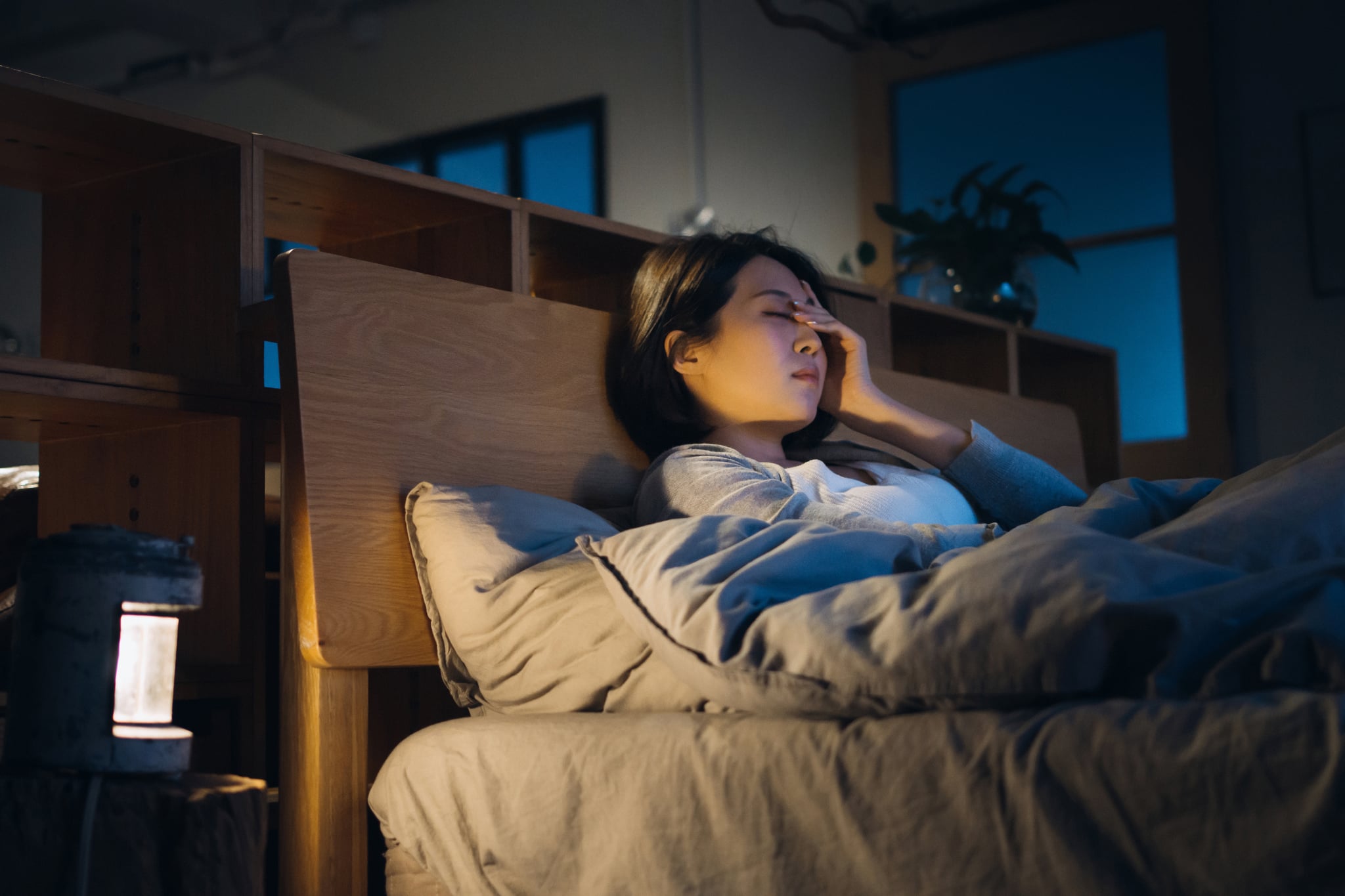Products You May Like

By now, you’ve probably had enough colds and flus in your lifetime to know the steps you need to take to feel better as quickly as possible. Staying hydrated and getting plenty of rest are at the top of the list, but the “rest” part can prove to be quite difficult if you have a nagging cough that keeps you up at night. Luckily, there are things you can do that will help soothe that cough and get you the shut-eye you so desperately need. POPSUGAR spoke with a doctor about the causes of nighttime coughing and the remedies that are most likely to bring you relief.
Why Is My Cough Worse at Night?
There are a few reasons your cough may get worse at night when you’re battling a virus. Shawn Nasseri, MD, an otorhinolaryngologist based in Beverly Hills, explained that when you lie down, mucus pools in the back of the throat, which can cause a cough to get worse. “Postnasal drip also causes more mucus to be produced than usual, especially when you have a cold or the flu,” Dr. Nasseri told POPSUGAR. “The excess mucus can cause nighttime coughing as well, especially because you are lying down.” And if the air in your home is dry, particularly during the winter months, it can irritate your throat, which also worsens coughing.
How to Ease Nighttime Coughing
Here are five things you can do, both before bedtime and throughout the night, to soothe a cough.
1. Take a warm shower.
It can be a helpful preventative measure as you wind down for the evening. Dr. Nasseri recommends letting the shower steam up for a few minutes before getting in, and adding a small amount of essential oils, such as a shower bomb, which can help open up irritated airways. “Never use an overwhelming smell or scent, but gentle scents can soothe naturally as they effervesce and aerosolize in the shower,” Dr. Nasseri told POPSUGAR, citing eucalyptus and lavender as examples. He explained that inhaling the steam from eucalyptus can help loosen up and reduce mucus, allowing you to cough it up before bed, while inhaling lavender can help improve airway resistance.
2. Drink hot tea.
Hot tea is another soothing nighttime ritual that may help quiet a cough. “Warm teas cause the vessels of the throat and the muscles to open and relax more, thereby soothing a sore throat, loosening mucus, and easing the coughing sensation,” Dr. Nasseri said. He recommends teas with “throat-comforting” ingredients in small amounts, such as chamomile, slippery elm, licorice root, cardamon, mint, and echinacea. “These all typically soothe, coat, and comfort, without overwhelming the palate,” Dr. Nasseri explained. He also suggests using a “soft” steep, rather than an overwhelming amount, because the latter can irritate your throat and voice.
3. Gargle warm salt water.
It’s less tasty than tea, but gargling warm salt water before bed also has benefits. “Gargling warm salt water can help remove mucus from the throat and reduce coughing,” Dr. Nasseri told POPSUGAR, adding that it can also help soothe a sore throat. He recommends mixing one teaspoon of salt with warm water and gargling several times right before you go to bed.
4. Use a humidifier in your bedroom.
“If the air is dry in your bedroom, it can cause a cough to become worse,” Dr. Nasseri said. “Using a humidifier at night will add moisture to the air and can soothe your throat and prevent coughing.” He suggests looking for a humidifier that has a HEPA filter or, at the very least, a UV light sterilizer, which helps clear bacteria and common viruses. Make sure the humidifier can be cleaned easily, too, because a weekly cleaning is essential. Otherwise, the humidifier can quickly become a host for bacteria, fungi, and mold that can further irritate your throat.
5. Elevate your head.
You’ve taken your hot shower, finished your tea, gargled salt water, and turned on the humidifier — and now it’s time to sleep. “Laying down on your back or side causes the mucus to pool at the back of your throat, which causes coughing to worsen,” Dr. Nasseri said. “This is why you need to elevate your head to help decrease postnasal drip and prevent coughing.” He recommends propping yourself up with two to three pillows before (hopefully) drifting off to a restful sleep.
